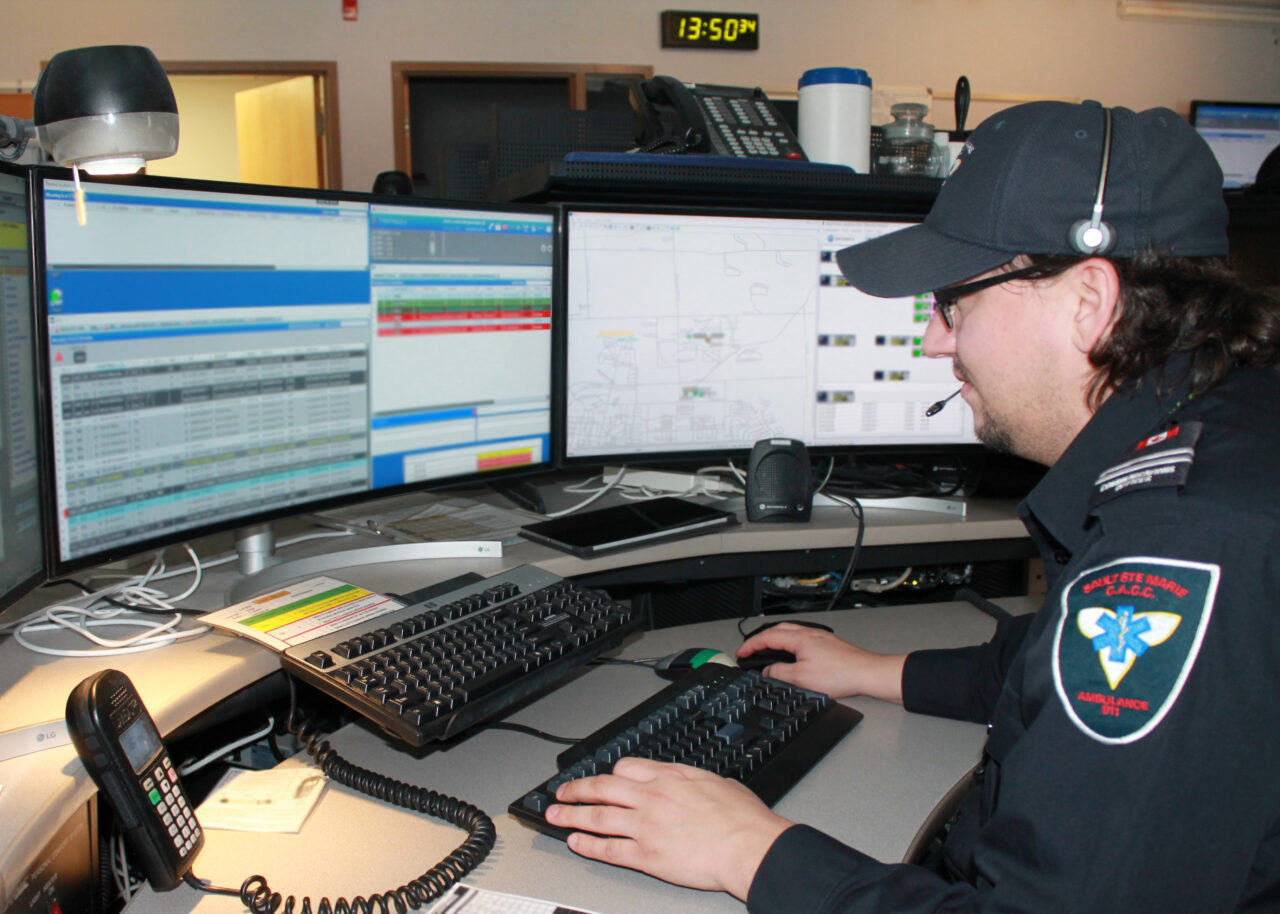If you are having a medical emergency, CALL 911.
What you need to know when calling 9 -1-1 for an ambulance.
When you call 9-1-1...
Stay on the line, do not hang up.
Stay calm.
An operator will answer your call quickly and ask if you need police, fire or ambulance.
A 911 ambulance call taker will ask questions to get you help. If you need a translator, say the language you speak.Your call will be transferred to a translator.
When you have identified you need an ambulance your call will be routed to our Central Ambulance Communication Centre and a trained Ambulance Communications Officer (ACO) will answer your call.

The ACO will want to know...
The call taker will ask questions to understand the medical emergency and your location, such as:
- What is the medical emergency?
- What is the address of the emergency (street number and address)?
- What city or town you are located in?
- What is the closest major intersection to your location?
- Where are you located at the address provided (outside of a building, inside of a building, in a vehicle, etc.)
- What is your phone number incase the call is disconnect?
When to call 9-1-1.
A medical emergency is something you can’t manage at home, a walk-in clinic, or with your family doctor. Examples of some medical emergencies include:
- Chest pain or tightness
- Choking or difficulty breathing
- Sudden and severe headache, vision problems, weakness, numbness, or dizziness
- Sudden trouble speaking or tingling in your face, arm, or leg
- A fracture or break in a long bone such as an arm or leg
- Serious burns
- Unexpected seizure
- Uncontrolled bleeding
- A child with diarrhea and vomiting who will not eat or drink
- An unresponsive individual
- A suspected overdose
- A labor that is progressing rapidly and you don’t think you can make it safely to a hospital before delivering
If you’re not sure how serious your health concern is, call 9-1-1 or Health811 at 1 866-797-0000 or by texting 811 from a mobile phone.
Ways to help while you wait for the ambulance...
Inside your home
· Make sure your front door is open. Have someone stand at the door to meet the paramedics.
· Clear the path to the patient. Remove items such as shoes or small rugs from the floor, steps, and around the front door.
· 1 or 2 people can stay with the patient if the patient can’t speak for themselves.
· Put pets in a different room.
· Do not smoke or vape.
· Gather information on the patient, such as medical history, medications, known allergy information, etc.
Outside your home
· Turn on your outside lights so your house number and front door are visible.
· Remove cars from your driveway if possible. Put away items that may get in the way, such as bicycles or a garden hose.
· Shovel a path through the snow so the paramedics can bring the stretcher to your front door. Salt the path, front porch, and steps.
· Have someone stand outside your home to flag down the paramedics. This will help them locate your house right away.
